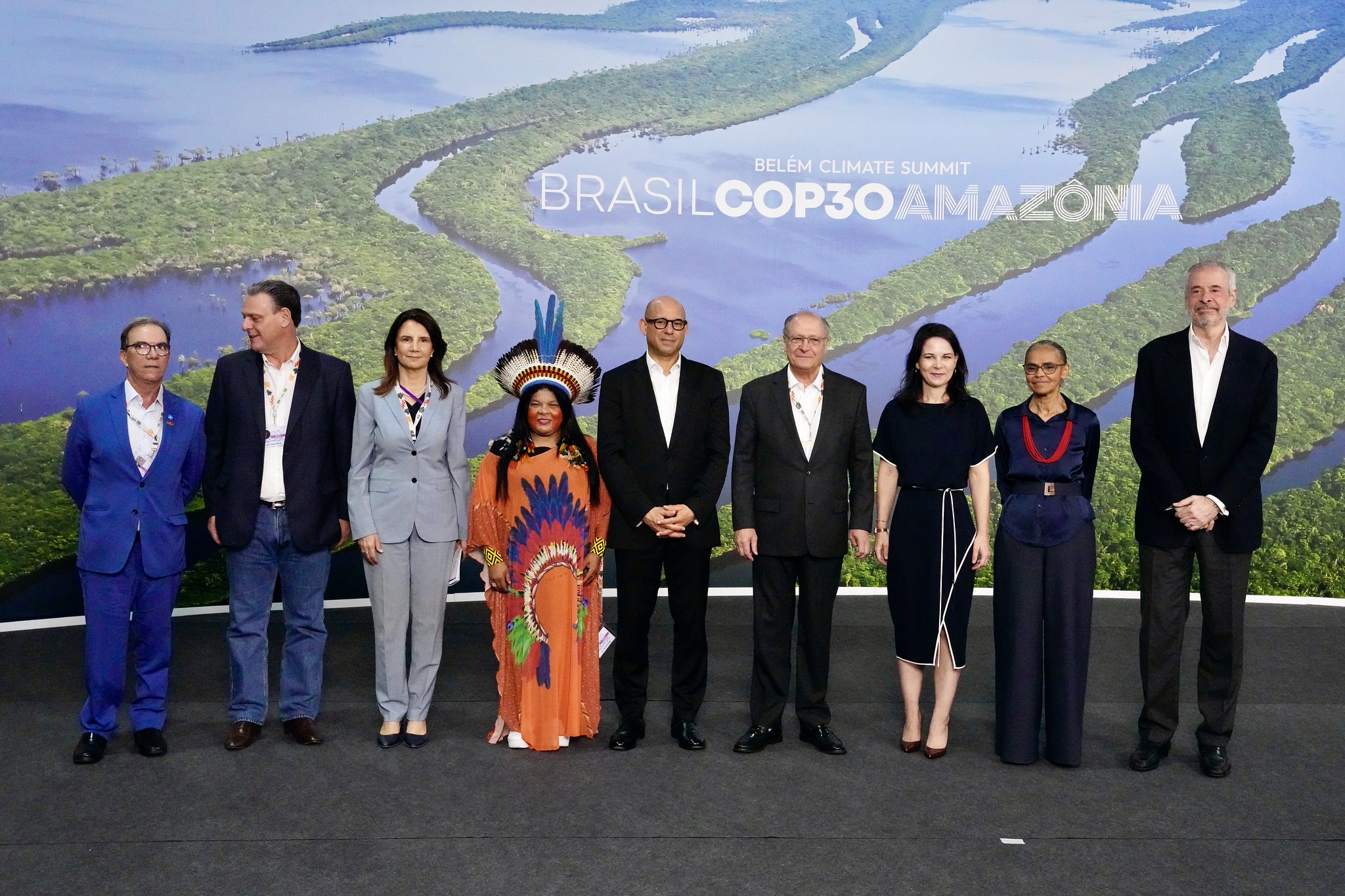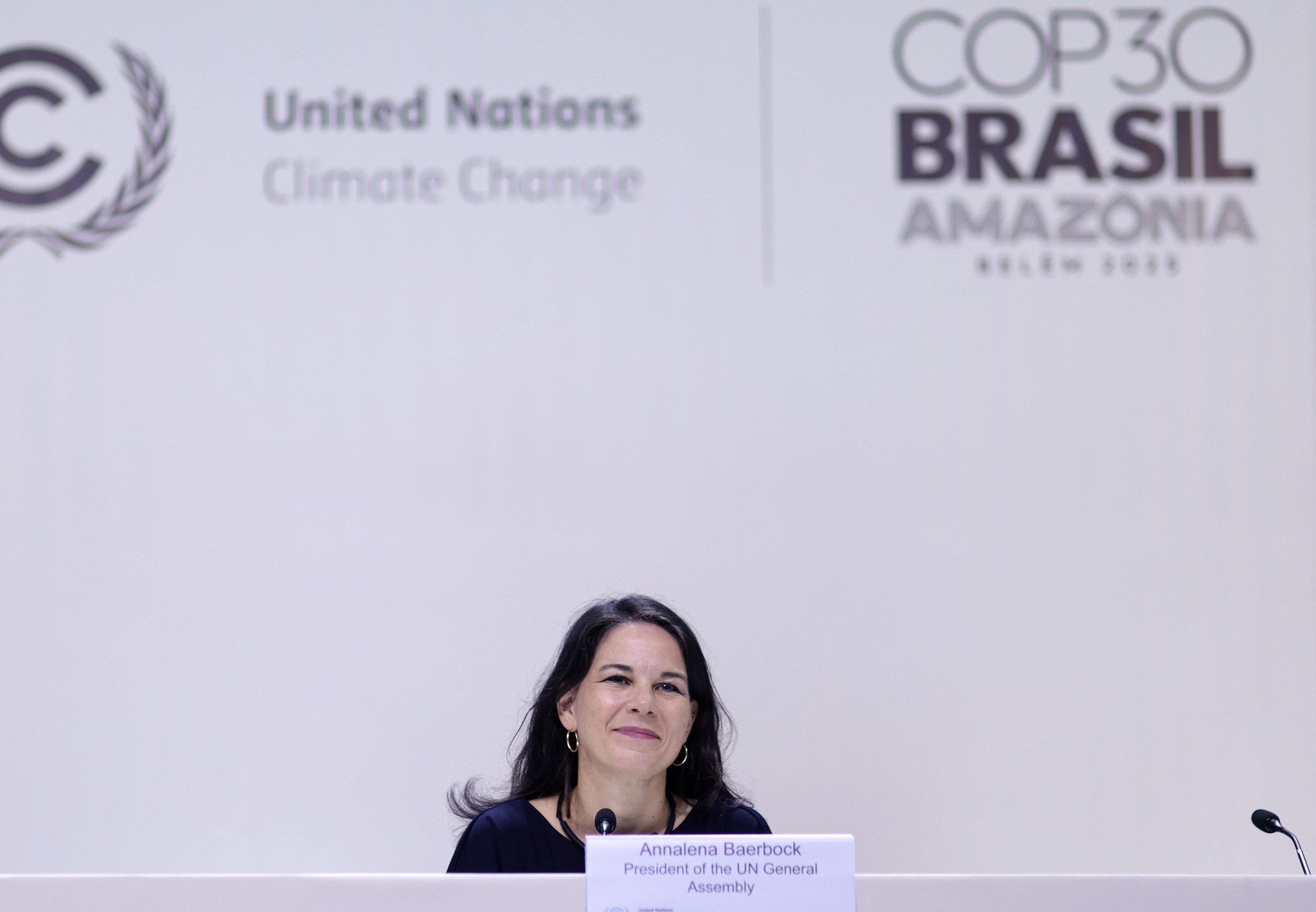COP30 Opens Second Week With Renewed Calls for Urgent Climate Action
Brazilian and international authorities underscored the urgent need to accelerate the energy transition, advance climate justice, and fully implement the Paris Agreement. The moment marks the beginning of the COP’s political cycle

By Mayara Souto/COP30
The second week of COP30 negotiations commenced on Monday, 17 November, with renewed calls for the full implementation of the Paris Agreement. During the opening of the high-level plenary, which opens the Conference’s political cycle, Brazilian and international authorities emphasized the urgent need to accelerate the energy transition and advance climate justice.
Vice President of Brazil, Geraldo Alckmin, addressed the plenary, reaffirming the Government of Brazil’s commitment to COP30. “This must be the conference of truth, of implementation, and above all, of responsibility,” he stated. He added, “We must all act in such a way that every decision made in the present—political, economic, industrial, or environmental—contributes to preserving the conditions for life on Earth, protecting biodiversity, and ensuring justice between generations.”
He further underscored the urgency of action, stating: "The time for promises has passed. Every fraction of a degree in additional global warming places lives at risk, exacerbates inequality, and deepens losses for those least responsible for the crisis. This COP must mark the beginning of a decade of acceleration and delivery — the moment when rhetoric gives way to concrete action, and when all parties move from setting targets to fulfilling them."
Simon Stiell, Executive Secretary of the United Nations Framework Convention on Climate Change (UNFCCC), called on Parties to accelerate the pace of negotiations as the second week of COP30 begins, noting the transition into the political phase of the agenda.
“I urge you to swiftly engage with the most challenging issues,” he stated. “When these matters are deferred to overtime, we all lose. Tactical delays and procedural obstructions are no longer tenable. The time for formal diplomacy has passed. Now is the moment to roll up our sleeves, unite, and deliver.”
A Decade of the Paris Agreement
“The Paris Agreement is humanity's only way to survive this global climate crisis, and to spread the vast benefits of climate action to all nations,” emphasized UNFCCC Executive Secretary Simon Stiell. He further stressed that “climate cooperation must stand firm in a fractured world.”

Annalena Baerbock, President of the 80th session of the United Nations General Assembly, acknowledged the complexity of climate negotiations while recognizing the significant achievements made under the Paris Agreement.
“The journey of the COP has never followed a straightforward, linear path. It has always advanced in surges and leaps. Through long nights and protracted negotiations, we have learned to move beyond the despair of Copenhagen and carry forward the legacy of Paris. That is why, especially as we mark ten years of the Paris Agreement — a long time when measured against the pace of the climate crisis, yet a brief moment in the context of international diplomacy — I choose to focus on the progress we have made,” she affirmed.
Baerbock acknowledged a prevailing sense of discouragement surrounding the climate process, driven by “setbacks on the global stage”. However, she emphasized the importance of recognizing and elevating examples of sustainability from across the world.
"Since Paris, I have been repeatedly inspired by the courage and determination of individuals who, across regions and sectors, have advanced in the face of adversity. The solutions are already out there — across the globe. Now, we must connect them, drawing strength from our most powerful allies: trust and regional cooperation. This represents a new form of multilateralism. Or, as we say here in Brazil: ‘vamos fazer um mutirão’ — let us join forces. This collective power is stronger than ever,” she affirmed.
Energy transition
Progress in renewable energy has been recognized as one of the most tangible outcomes of the Paris Agreement. At COP28 in Dubai, Parties established a global target to triple renewable energy capacity and double energy efficiency by 2030, as part of the Global Stocktake (GST) and the framework of Nationally Determined Contributions (NDCs).
“Many once questioned the potential of renewable energy. Speaking of coal phase-out was considered nearly utopian. Yet now, ten years on — a brief span in international diplomacy — we are undertaking the transition away from fossil fuels,” stated Annalena Baerbock. “Renewables have become the fastest-growing source of energy, accounting for 90% of new global energy installations in 2024,” she added.
UNFCCC Executive Secretary Simon Stiell also highlighted this momentum, noting that over USD 2.2 trillion was invested in renewable energy last year alone — a figure exceeding the GDP of 180 countries. At COP30, this trajectory continues.
“In just seven days, nations have mobilized trillions of dollars in clean energy and grid investments. They have launched a global roadmap to quadruple sustainable fuels (Belém 4x), unlocked new pathways for green industry, and initiated a pipeline of adaptation-focused investments. These developments reflect an undeniable truth emerging from this process: a new economy is taking shape,” he affirmed.
Leadership
Brazil’s Vice President highlighted the country’s advanced standing in the field of energy transition. “Brazil arrives at this conference reaffirming its commitment to clean energy, innovation, and inclusion. We possess the most renewable energy mix among major economies and are pioneers in biofuels and bioenergy. This year, under President Lula’s administration, the share of ethanol in gasoline was increased to 30%, and biodiesel content was raised to 15%,” he recalled.
Vice President Alckmin further reiterated Brazil’s leadership in advancing sustainable fuels, referencing the Belém 4X Commitment launched at the Belém Climate Summit. “In alignment with this vision, the Belém 4X Commitment aims to quadruple the use of sustainable fuels by 2035, with 25 countries and international entities already joining the effort,” he stated.
Alckmin also reaffirmed Brazil’s commitments to end deforestation by 2030 and to launch the Tropical Forests Forever Fund (TFFF), which aims to reward countries that preserve their natural vegetation. “Protecting the forest means protecting people—because human life and nature are inseparable,” he stated. He further highlighted the creation of the Global Coalition on Regulated Carbon Markets, which will establish a common standard and connect different carbon credit trading systems.
Exhibition: Amazônia
COP30 President, Ambassador André Corrêa do Lago, presided over the high-level session. During the opening, he dedicated a moment to the screening of a video featuring selections from the photographic series Amazônia by renowned Brazilian photographer Sebastião Salgado, who passed away in May of this year.
“His legacy endures as a timeless conscience of his era — a vision that dignifies the individual through their work and their land, and calls upon us to safeguard the forests, the waters, and all living beings on our planet,” Ambassador Corrêa do Lago remarked, referring to the photographs taken between 2013 and 2019 across various regions of the Amazon.
The video was curated by Salgado’s wife, Lélia Wanick Salgado, with musical accompaniment by Brazilian opera singer Maria Lúcia Godoy. The full exhibition is on display at the Museu das Amazônias in Belém.
Translation: Michel Emmanuel Félix François (POET/UFC)
Proofreading: Tadeu Azevedo (POET/UFC)
